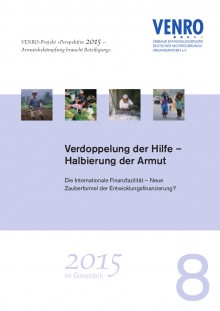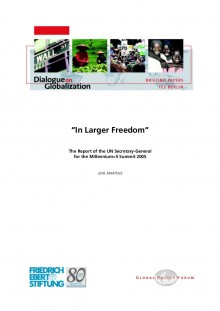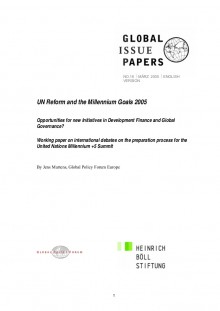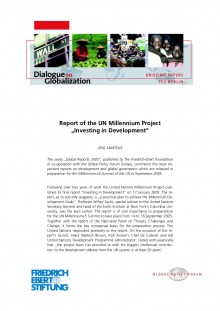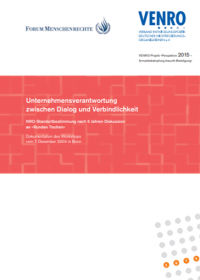
Im Vorfeld des »Millennium+5«-Gipfels der Vereinten Nationen im September 2005 ist Bewegung in die festgefahrene Debatte über Entwicklungsfinanzierung gekommen. Aufrüttelnde Berichte des UN-Generalsekretärs Kofi Annan, des von ihm initiierten Millenniumprojekts unter Leitung von Jeffrey Sachs und der Weltbank kommen einhellig zu dem Schluss, dass die Millenniumsentwicklungsziele (MDGs) bis zum Jahr 2015 nur noch zu erreichen sind, wenn die öffentliche Entwicklungshilfe (ODA) unverzüglich und drastisch erhöht wird. Diese Einschätzung wird inzwischen nicht nur von NGOs sondern auch von den meisten Regierungen [...]

